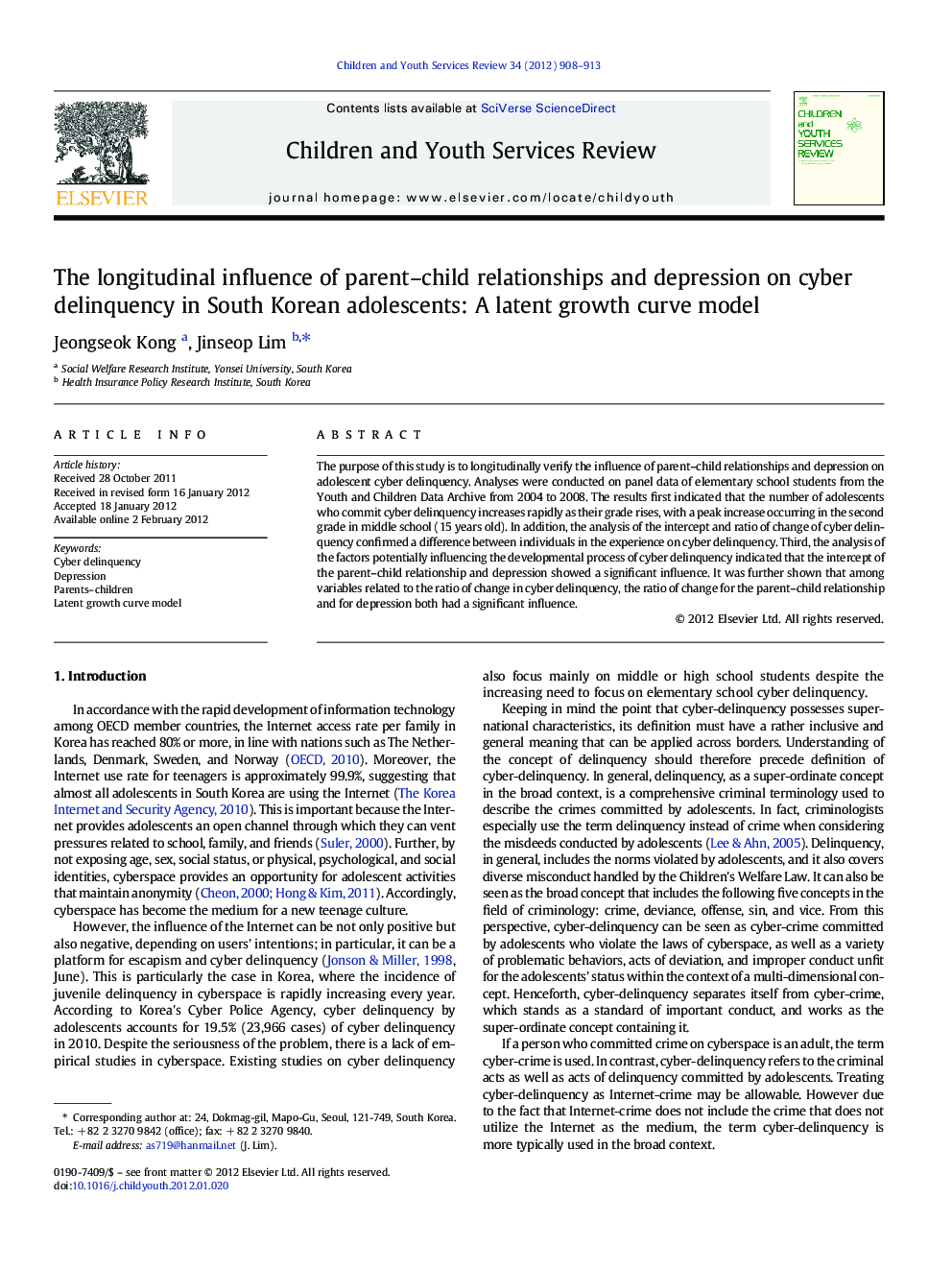| Article ID | Journal | Published Year | Pages | File Type |
|---|---|---|---|---|
| 346526 | Children and Youth Services Review | 2012 | 6 Pages |
The purpose of this study is to longitudinally verify the influence of parent–child relationships and depression on adolescent cyber delinquency. Analyses were conducted on panel data of elementary school students from the Youth and Children Data Archive from 2004 to 2008. The results first indicated that the number of adolescents who commit cyber delinquency increases rapidly as their grade rises, with a peak increase occurring in the second grade in middle school (15 years old). In addition, the analysis of the intercept and ratio of change of cyber delinquency confirmed a difference between individuals in the experience on cyber delinquency. Third, the analysis of the factors potentially influencing the developmental process of cyber delinquency indicated that the intercept of the parent–child relationship and depression showed a significant influence. It was further shown that among variables related to the ratio of change in cyber delinquency, the ratio of change for the parent–child relationship and for depression both had a significant influence.
► We confirmed the developmental process of initial adolescent cyber delinquency. ► We proved the longitudinal influence of parent–child relationship on cyber delinquency. ► We confirmed the longitudinal influence of parent–child relationship on depression. ► We confirmed the longitudinal influence of depression on cyber delinquency.
